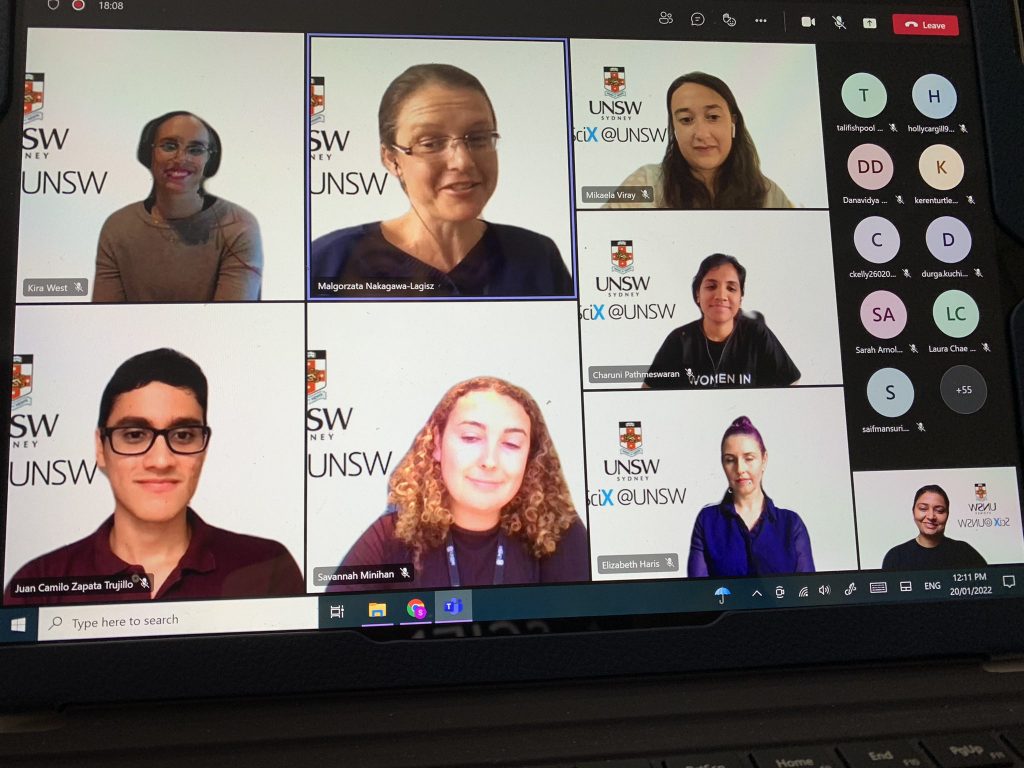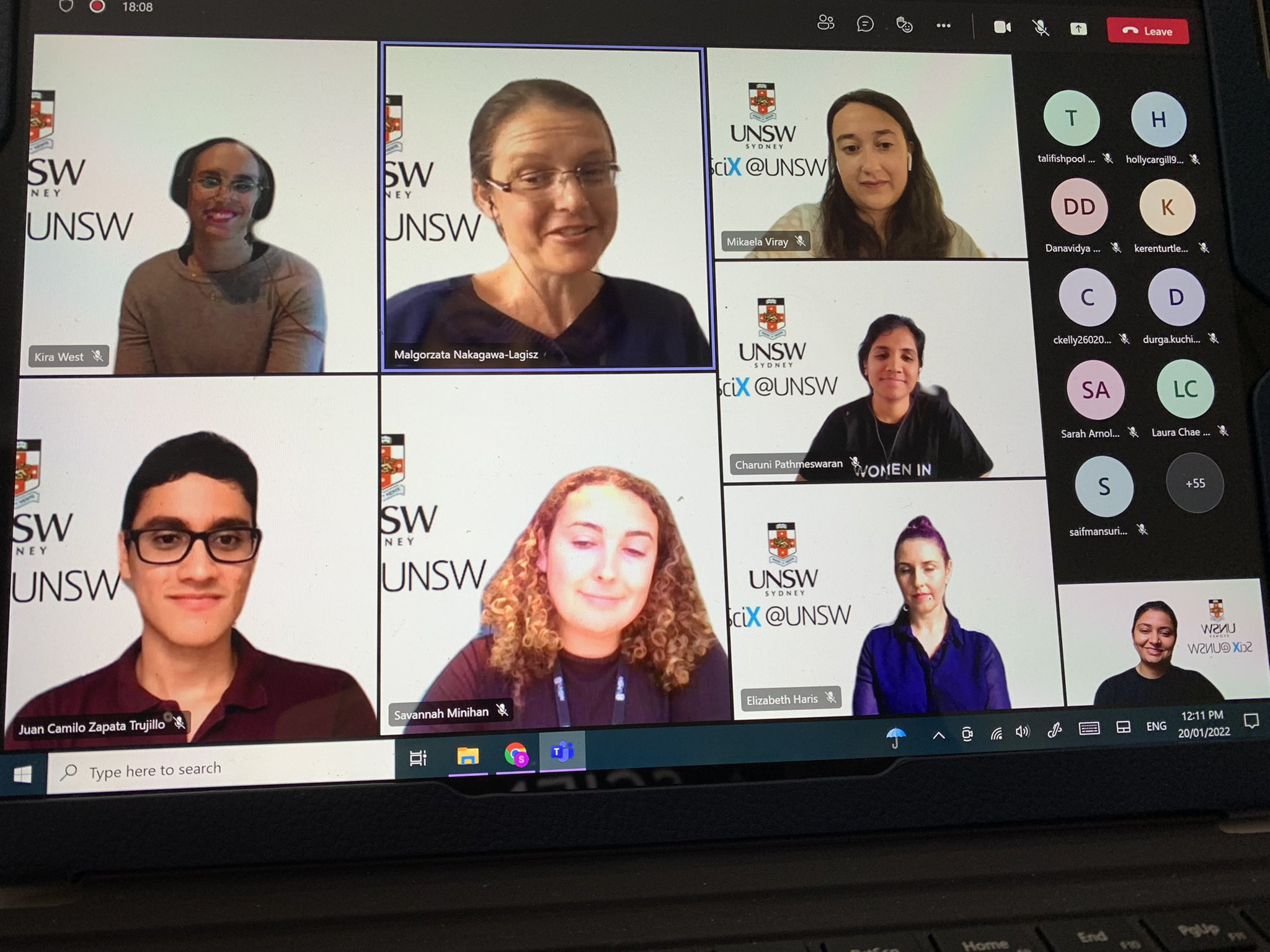By Elizabeth Haris
For the third year in a row, UNSW has delivered a successful Science Extension (SciX) program to senior high school students passionate about science—and this year, some of our PhD champions got to take part!
SciX@UNSW is a summer school developed for high school science students to extend their understanding of the scientific method. Developed in collaboration with high school science teachers as a response to the Science Extension Syllabus, students take part in their own scientific research, developing a hypothesis, analyzing data, and presenting their findings. As well as learning technical lab skills like mathematical modeling, programming, and statistics, students also learn transferable skills like planning a project, collaboration, and critical thinking. And of course, one important aspect in all these things is a deeper understanding of equity, diversity, and inclusion (EDI).
A few of us PhD champions were involved in a panel discussion aimed at facilitating a conversation about the critical importance of EDI to progress in STEM. We took part in a discussion on issues surrounding open science, diversity, and representation in science, which is something particularly important to us as champions for women in maths and science.
Though open science creates enough conversations in its own right, it is imperative that there are EDI practices across all aspects of science to enable science to be completed, published, and accessible to all. Introducing students to practices that enable the production of reproducible science—open code, deidentifying and sharing data, transparent research practices—is crucial at the beginning of their science careers to create good working practices. Yet just having good working practices isn’t enough to make science accessible to all. Students were also introduced to the practices still making science inaccessible (e.g., pay to publish articles and pay to read articles), and how this affects society at large. If we can’t make science accessible to all, we risk making it elitist and unrepresentative of society at large. But if we can facilitate a discussion about the inequities in the accessibility of science at the beginning of these scientists’ careers, then hopefully they can help create the change we need to see.

The other important topic of the session was the representation of minorities and women in STEM, primarily centered around a 2012 video by the European Commission titled, Science, it’s a girl thing!. A dismal attempt designed to entice high school girls to pursue careers in science, this video simply reinforced stereotypical gender cliches of men as ‘serious’ scientists (i.e., in lab coats), and women wearing high heels, short skirts, and makeup, and just posing and giggling. Allowing students the opportunity to discuss their thoughts on the video and on the representation of women in STEM in general, brief discussions were held surrounding gender stereotypes in science, women entering science and staying in science, and why it’s important to have diverse perspectives in science. It is exactly these kinds of issues that need to be at the forefront of these students’ minds when entering STEM fields: not only are they the ones these issues will affect, but they are the ones who can help change the system. If we empower students at the beginning of their science careers to stand up for representation in science, then hopefully one day we can all benefit from such a rich and diverse STEM environment.
As champions in maths and science, it was a pleasure seeing these young minds critically engaging with issues crucial to the progress of EDI in STEM through the SciX program. Fostering such an understanding of EDI in the next generation of scientists will not only allow for more inclusive science practices, but also create a more diverse population of compassionate, kind, and caring individuals in STEM and in society at large. Something from which we could all benefit.

